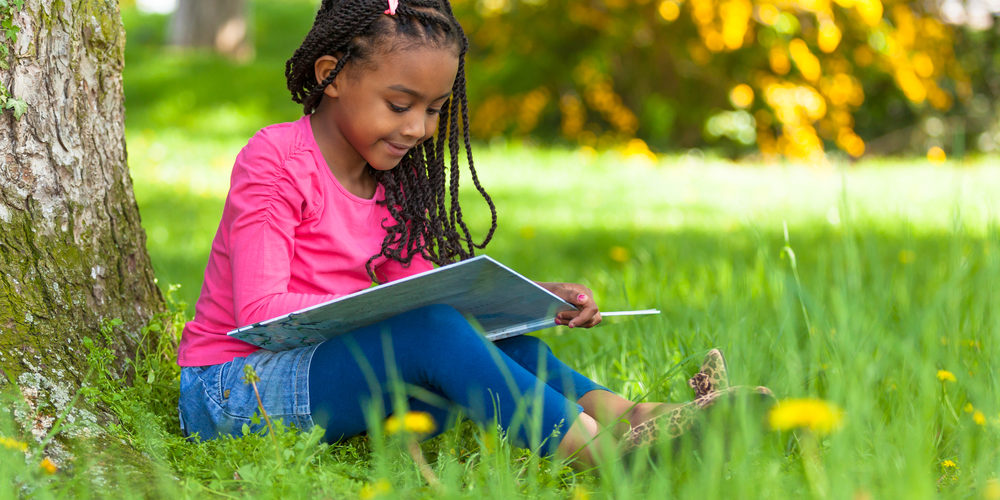Summer is upon us! For children, this is a moment when they can enjoy plenty of uninterrupted play and sleep. For parents, you could be stressing about how all those lessons your children learned at a Philadelphia Montessori school are going to vanish. Don’t worry. The Montessori method is applicable anywhere—even during summer vacation. Here are six ways to utilize and benefit from Montessori’s wisdom this summer:
1. Get Out in Nature
One of the things we want to do when summer strikes is stay inside with the air conditioner running on full blast. Yet, summertime is also great for exploring the outdoor world. Dr. Maria Montessori was always encouraging that people learn within nature from nature. Outside, children can quickly develop their senses, strength, coordination, and worldly knowledge.
Both younger and older children can enjoy outdoor activities and sports. Go for hikes in local or state parks. Ride bikes. Swimming, rock climbing, snorkeling, diving, canoeing, kayaking, baseball, basketball, and so much more can be done rain or shine.
Another way to bring your children outdoors this summer is to build a family garden. Even small yards can provide plenty of space for a patch of vegetables and flowers. Children will benefit from learning how to grow their own produce while mastering tools. You don’t have to instruct them every step of the way. Guidance here and there will assist your child in exploring agriculture, and if they encounter any small insects or creatures, sit with them and observe those organisms in their natural environment.
2. Read & Write
You know what you can do more of during the summer? Read. Foster a love of learning and language in your children by scheduling trips to the local bookstore or library every week. You can also teach them new vocabulary with board games like Scrabble, Boggle, and UpWord. Encourage journaling, reading stories out loud, listening to audio books and classical music throughout the day, and writing poetry. For older children, you could find essay or poetry contests that they could enter. There are plenty of ways to enrich your child’s love of literature and language, so be creative.
3. Be Practical
Some things should be almost like a ritual in your home, whether you have been using Montessori principles for years or just a few weeks. One of those is helping your child gain practical knowledge that will serve them later in life. Many of these practical activities will look like chores to those who don’t know Montessori education.
However, rituals and routine help children feel secure—and foster a sense of responsibility and independence. Here are some things your children can continue to do this summer:
- Washing windows with a mixture of vinegar water and wiping the glass clean
- Helping to peel fruits and vegetables
- Sorting and folding laundry
- Sweeping areas around the house
- Making the bed
- Washing shoes and boots
- Weeding in the garden
- Preparing snacks for themselves
- Brushing the pets (or, for older children, cleaning out cages and litter boxes)
- Setting out utensils for dinner
- Loading and unloading the dishwasher
4. Honor Your Child’s Independence
In any Montessori school in Philadelphia, you’ll notice that children aren’t forced into group work. Yes, it’s summer, and you might want to enroll your child in activities and day camps or find them a playmate for the summer; that isn’t always the best thing for your child. Give them some independence this summer. Let them choose how they wish to entertain themselves. Yes, most children do enjoy an occasional play date with others, but they also need time on their own to flex their creative muscles.
Similarly, find ways to schedule some of your responsibilities so that your child is left with larger periods of uninterrupted play. That is their time to work and develop skills. Avoid dragging them along to the grocery store—which is an adult activity—if you can.
5. Savor Sensations
Montessori wrote, “The training and sharpening of the senses has the obvious advantage of enlarging the field of perception and of offering an ever-more solid foundation for intellectual growth.” In other words, you need to keep your child’s senses engaged. Developing intelligence is more than just memorization. Sensory input helps children build essential neurological connections.
Fortunately, sensations aren’t difficult to come by in the summertime. You can purchase some Montessori learning materials for playtime, or you can make some sensory objects by hand. Go outside and invite your child to take in the textures and smells. Visit child-friendly museums.
This also feeds into the creative arts, such as music, photography, singing, dancing, painting, sewing, tie-dying shirts, and sculpture. Introduce new mediums and new materials that are suitable for your child’s developmental stage.
6. Do Some Service
Compassion and consideration for other human beings is at the forefront of a Montessori education. Learning to respect oneself and others is built into the curriculum. For older children, community service can teach them much about the world. Volunteering in something that suits their interests is also beneficial. For example, if your child loves animals, see about having them volunteer at the local humane society, animal shelter, or zoo. If they’re passionate about the environment, participate in a community trash pick up (or start your own). Teach them how to recycle, too.
Make This a Montessori Summer
It might take a little planning, but summer is a long stretch of time for children. Make summer the time when your child grows, rests, and nourishes themselves continuously. By applying some of Montessori’s wisdom, you can make this summer the best one yet. And your child’s teachers at the Fishtown Montessori school in Philadelphia will be so excited to see your child’s growth at the beginning of the next school year!






